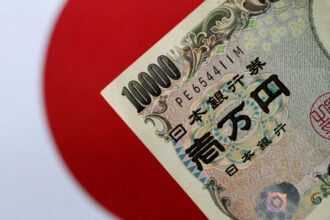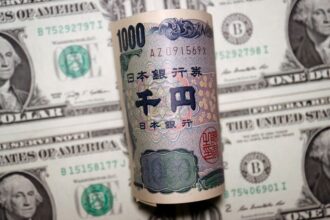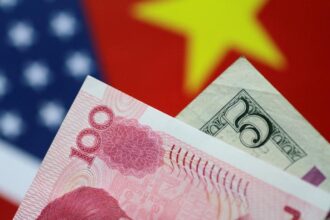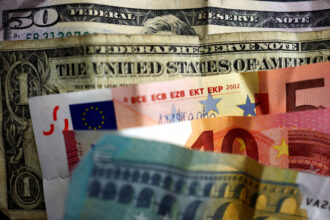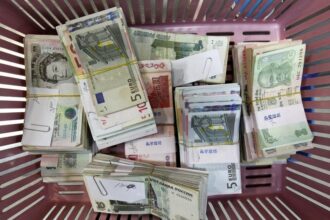(Reuters) – China’s major state-owned banks were heavy sellers of dollars on Wednesday, three people with direct knowledge of their activity said, steadying the yuan as it came under pressure in currency trade as the economy remains shaky.
State banks often act on behalf of China’s central bank in the foreign exchange market, but they could also trade on their own behalf or execute clients’ orders.
One of the people said the selling was “very forceful” to defend the yuan at around 7.1820 per dollar in the onshore spot market.
All the sources spoke on condition of anonymity as they are not allowed to publicly discuss market conditions.
The state bank actions come as the yuan faces renewed downside pressure from foreigners’ rush out of China’s sinking equity markets and a globally resurgent U.S. dollar.
With a 1% fall, the yuan is headed for its largest monthly drop on the dollar in five months and the blue-chip CSI 300 equity index notched a record sixth consecutive monthly loss on Wednesday. [.SS]
Investors are gloomy about China’s growth prospects, frustrated at the lack of a large-scale rescue for the embattled property sector and exhausted by several years of underperformance.
Only the bond market is a bright spot – which is putting further pressure on the yuan – as 10-year Chinese government bond yields sank to two-decade lows on expectations that there’ll be more monetary easing to prop up the economy.
The state bank action effectively put a floor under the , which last traded at 7.1805 per dollar, marginally lower than Tuesday’s close.
China and Hong Kong stocks extended declines on the last trading day of January, with the blue-chip CSI300 Index recording a sixth straight losing month as economic data and stimulus measures disappoint. [.SS]
(This story has been corrected to fix stock index milestone in paragraph 10)
Read the full article here





